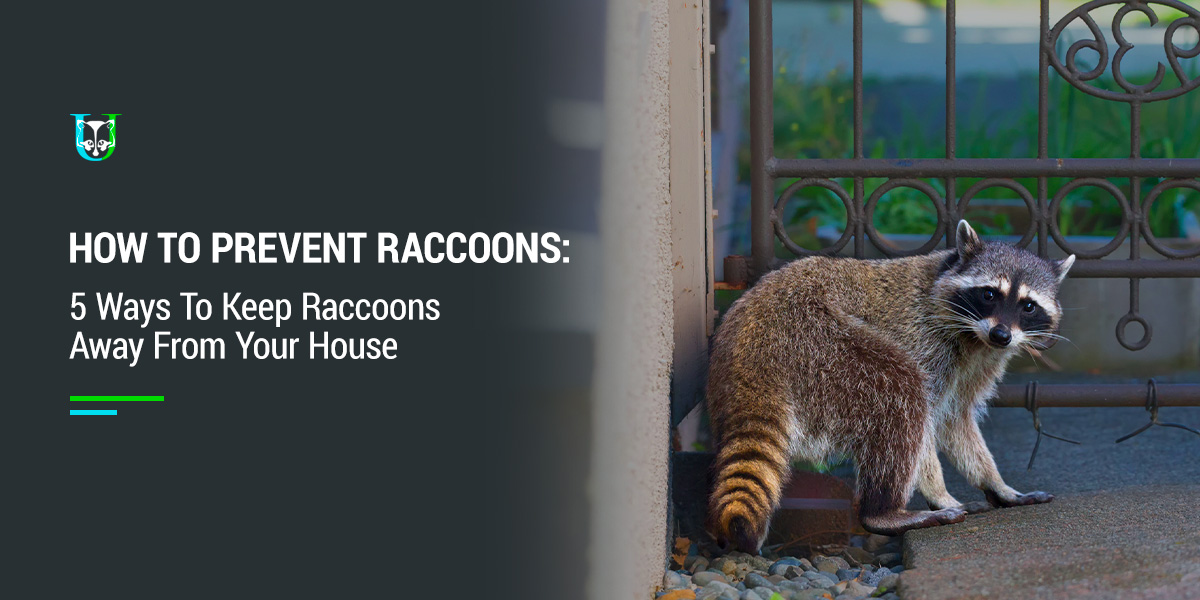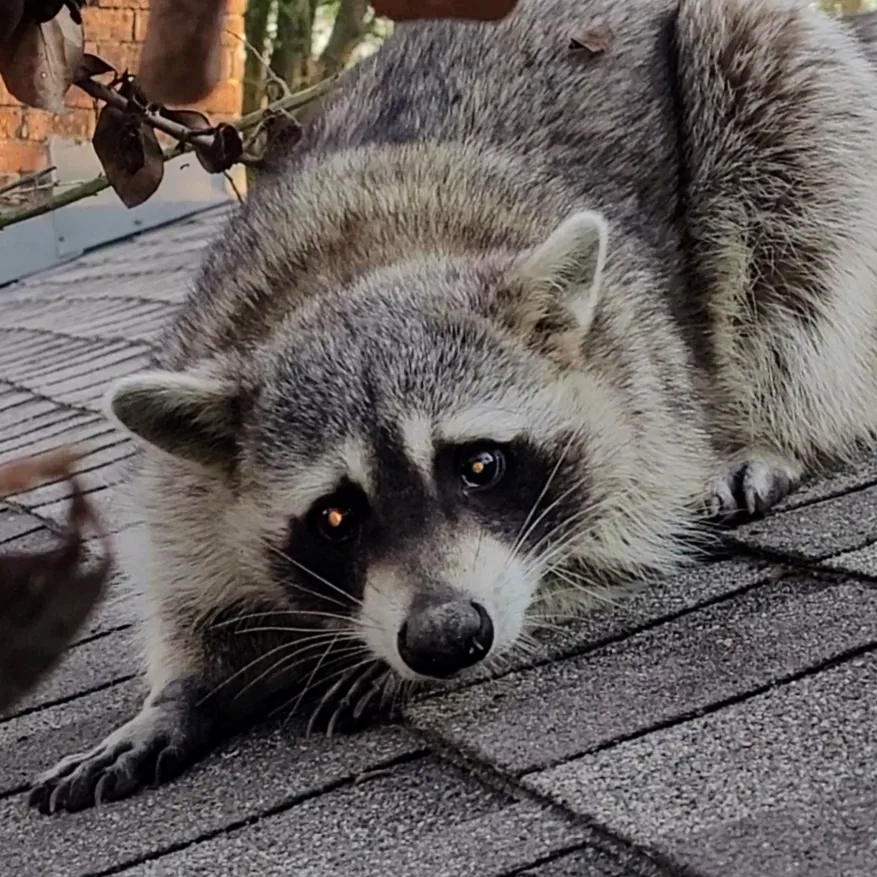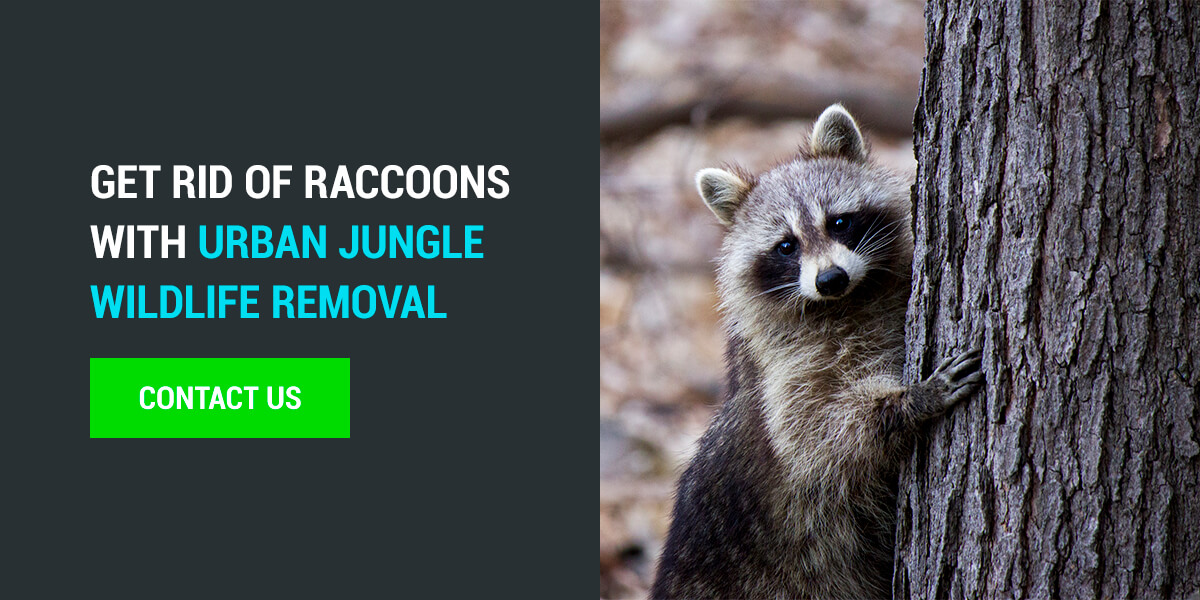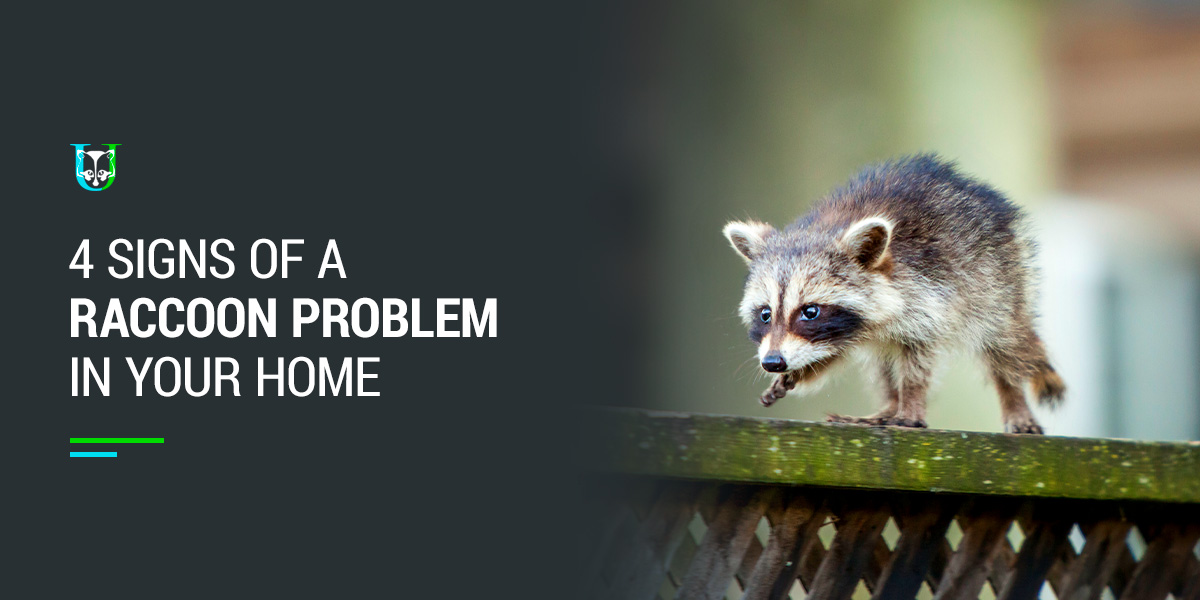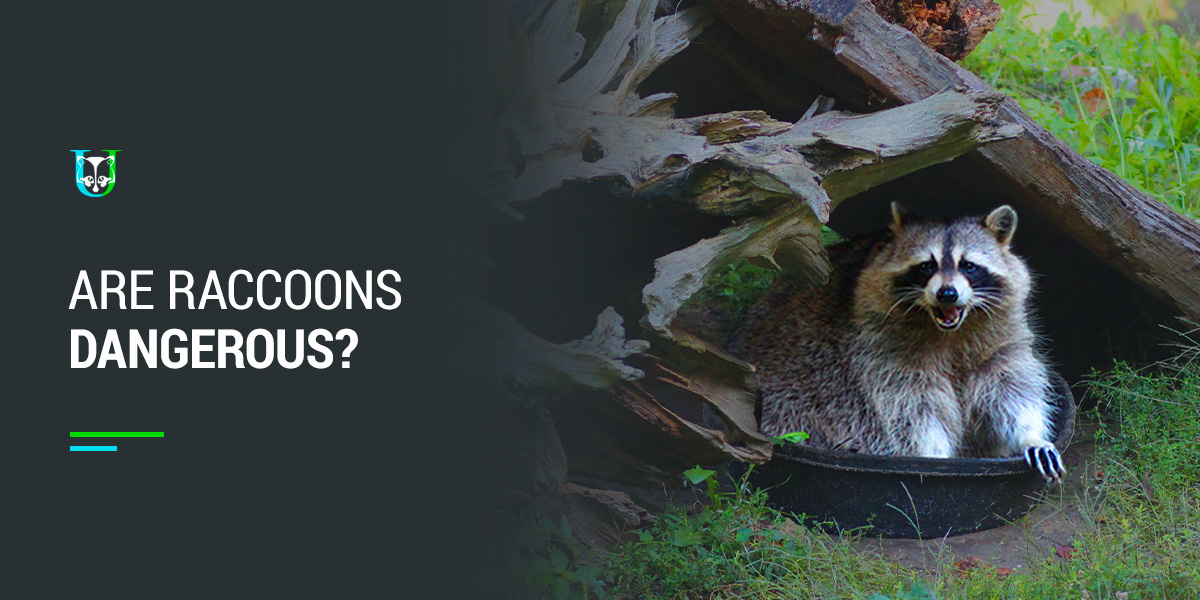Have you been seeing more raccoons around your neighborhood lately? You’re not alone. Raccoons are no longer confined to their natural habitats of forests and wetlands. Recent decades have seen a great raccoon migration to urban and suburban areas. City streets and local neighborhoods offer these small scavengers a bounty of food sources.
Keep your property from becoming a haven for these masked bandits. In this post, we’ll teach you how to keep raccoons away. These five tips for preventing raccoons rely on making them feel unwelcome and using natural deterrents to ensure your home is inhospitable to these intelligent mammals.
Call Now for Raccoon Removal ➔
1. Remove Raccoon Food Sources
Like with any wild animal, providing a regular source of food for raccoons encourages dependence on humans and can lead to overpopulation. These critters are smart and resourceful. They’re also master scavengers. Enhanced night vision allows them to easily feed at night.
If you’re feeding the raccoons, stop. You should also locate potential food sources and remove them to keep raccoons at bay. These could include:
- Pet food and water bowls.
- Bird feeders.
- Compost piles.
- Grills, barbecues and grease traps.
- Fruits or nuts that have fallen from trees.
- Grubs and other larvae.
2. Secure All Garbage Cans
A raccoon’s incredibly dexterous paws make opening trash cans a breeze. In fact, neighborhood garbage is their top food source.
Effectively securing your trash cans may require some ingenuity. Popular garbage security methods include:
- Using bungee cords to secure lids.
- Adding weights on top of trash can lids.
- Investing in a garbage can shed that can be secured with a lock and key.
- Choosing trash cans specifically designed to prevent pests.
3. Raccoon-Proof Your Garden
If you love eating fresh produce from your backyard garden, the raccoons probably do, too. Your veggies, fruit trees and berry bushes could be a major food source for local raccoons.
Take steps to raccoon-proof your garden area. A strip of electrified wire should be enough to scare off raccoons without hurting them severely. However, electric fences can be dangerous if you have small children or pets. Many homeowners have had success coupling garden enclosures with motion-activated sprinklers.
4. Use Scents to Keep Raccoons Away
Strong scents make a simple yet excellent barrier if you’re wondering how to deter raccoons naturally. Raccoons have an incredible sense of smell. Utilizing this trait can potentially keep them away from your home.
Scents that do a great job of irritating a raccoon’s sense of smell include:
- Hot pepper.
- Onion and garlic.
- Freshly planted cucumber.
- Ammonia.
- Vinegar.
- Epsom salt.
- Peppermint essential oil.
- Urine from predators, such as wolves, coyotes or bobcats, which you can purchase online.
Don’t worry about coating your entire yard. Instead, focus your efforts around the perimeter of your property or near enclosed spaces, food sources and other areas that may attract raccoons. Most scents only last a few days, so you will need to reapply them regularly.
5. Make Raccoons Feel Unwelcome
Besides food, raccoons often seek a warm, safe place to nest. Make your property feel inhospitable to discourage them from sticking around. Motion-controlled lights, sprinklers or even music can scare raccoons into leaving.
Rid Your Home of Raccoons With Urban Jungle Wildlife Removal
Is a raccoon nesting in your home? Contact a wildlife removal service immediately. Attempting to remove a raccoon on your own can be dangerous, so it’s best to call the professionals at Urban Jungle Wildlife Removal.
Our raccoon trapping and exclusion services remove raccoons from the premises so you and your loved ones can remain safe without experiencing property damage. If you’re having any issues with raccoons or other wild animals, contact us today.

